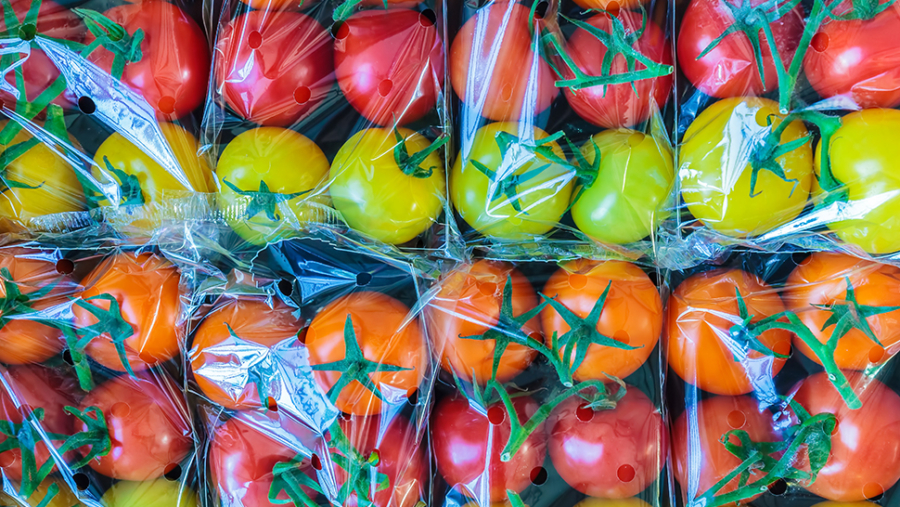

20,000 UK producers and importers of plastic packaging face a new tax in only 12 months’ time.
A new plastic packaging tax (PPT) is set to come into effect from April 2022. An indirect tax, PPT will apply to UK manufacturers and importers of plastic packaging which contains less than 30% recycled plastic content.
The UK government’s intention is to incentivise business to use recycled materials in the production of plastic packaging as it accounts for 44% of all plastic used in the UK, and unsurprisingly 67% of plastic waste; most people throw packaging away. It is hoped PPT will re-energise recycling and the collection of plastic waste, diverting it away from landfill and incineration, with associated advantages for the environment.
PPT will be charged at £200 per metric tonne (Mt) of chargeable plastic packaging components of a single specification. This is in addition to the regulation associated with the package recovery note (PRN) system that provides evidence that waste packaging material has been recycled into something else.
Concerns we are hearing from industry include:
- ‘When we import 1000Mt of raw materials, we cannot know how they will be used; we simply sell it. It can be used for all sorts of purposes and some will be mixed with recycled products to make packaging – we do not have much visibility over our customers and have to make an educated guess currently. In the UK the liability will be with the converter.’
- ‘£200 is very steep; does government not appreciate this will push up prices and reduce competitiveness at a massively challenging time?’
- ‘£200 per Mt is about 20% of cost of raw material on average, more if prices are at the £800 per Mt as they were only six months ago. What can we do?’
As well as thinking about how to mitigate the extra costs, or adapt to avoid them, it is important for businesses to be aware of the exemptions. There are also penalties, criminal offences, and anti-avoidance tools to consider as well, and the next 12 months will prove crucial.
Draft legislation & exemptions
The government has prepared draft legislation and explanatory notes. PPT is set to apply to both plastic packaging manufactured in, and imported into, the UK.
Exemptions are anticipated for businesses who manufacture and/or import less than 10 Mt of plastic packaging in a 12-month period and plastic packaging which:
- has 30% or more recycled plastic content
- is made of multiple materials, of which plastic is not proportionately the heaviest by weight
- is manufactured or imported for use as immediate packaging of licensed human medicines
- is in use as transport packaging to import products into the UK
- is exported, filled or unfilled, unless it is in use as transport packaging to export products out of the UK.
Do check if you are unclear whether these exemptions apply to your products ahead of the tax being imposed.
Administration and enforcement
HMRC will be responsible for administering PPT, and will be able to issue penalties for breaches including:
- late registration
- late filing
- late payment
- failure to provide information
- failure to keep records
- incorrect notifications.
The draft legislation also provides heavy penalties for those who contravene specified PPT obligations and creates a number of criminal offences concerning the fraudulent evasion of PPT, supplying false information and evasion or misstatements in respect of obligations.
Who will it affect?
The measure is expected to impact on 20,000 UK producers and importers of plastic packaging. One-off costs are potentially high and likely to include work to redesign plastic products manufactured or imported, familiarisation with the new rules, training, registration with HMRC, and developing the required reporting framework to complete PPT returns. HMRC acknowledges continuing costs will all also include completing, filing tax returns, and paying the PPT due, keeping appropriate records (including those required to claim the export credit), and amending returns.
Tax avoidance
The draft legislation includes measures to prevent avoidance of PPT by artificially separating business activities. Establishing whether separation of business activities is artificial is not straightforward and will involve examining a number of conditions and legal definitions. This is a complex area and one ripe with potential risk. The draft legislation provides for penalties for failure to comply with the obligations to disclose tax avoidance schemes and appropriate expert tax advice should be sought in any case of doubt. The draft legislation also provides for penalties in cases of serial tax avoidance of PPT.
Conclusion
PPT looks set to create significant potential additional costs for large numbers of manufacturers and importers, on top of the obligation to pay the new tax. Agile manufacturers and importers will be thinking ahead, adapting where they reasonably can, to ensure plastics they use do not create a liability to PPT, and considering the commercial viability of their current offerings in light of this new liability to tax.
Situations in which PPT may apply will not always be obvious and the draft law involves much interpretation of complex definitions, whilst exemptions are numerous and include subtle distinctions. Finally, the draft legislation highlights the very significant risks of non-compliance, evasion, and avoidance. In all of the circumstances, there may be significant commercial advantages to planning ahead for PPT, well in advance of April 2022.










